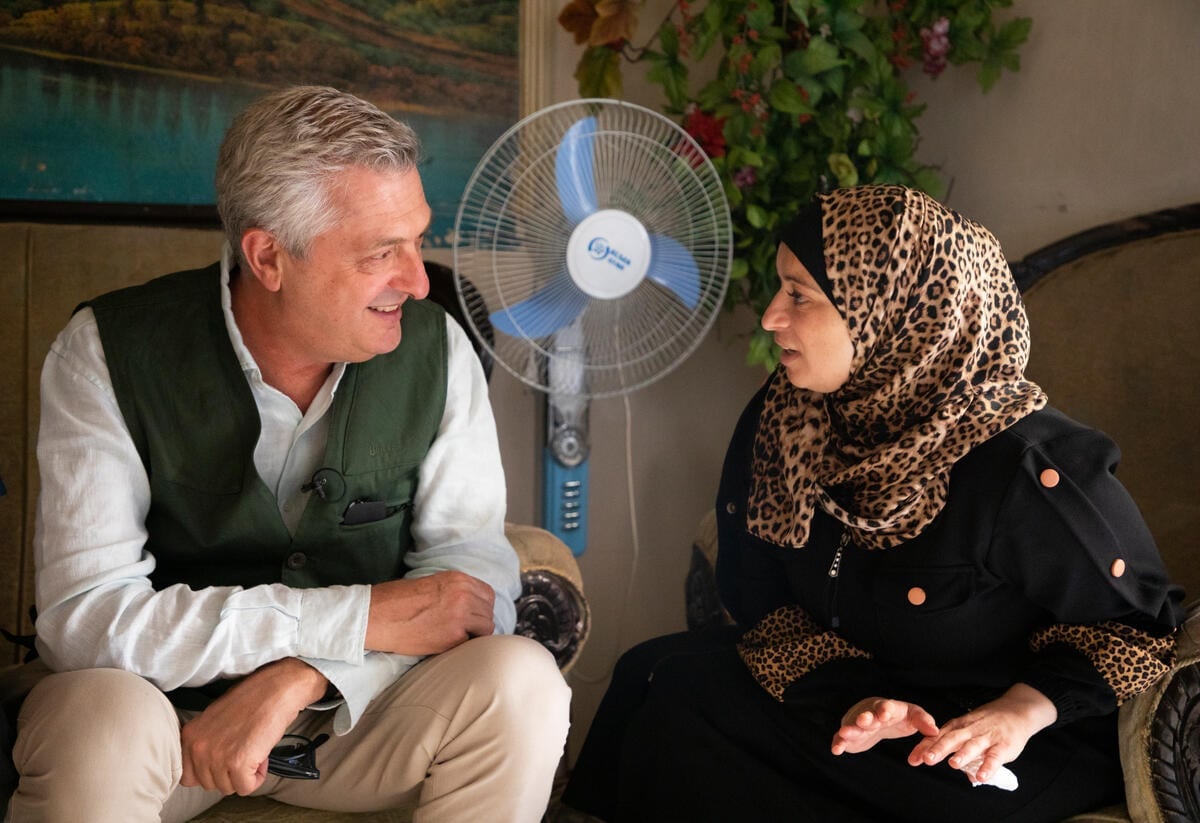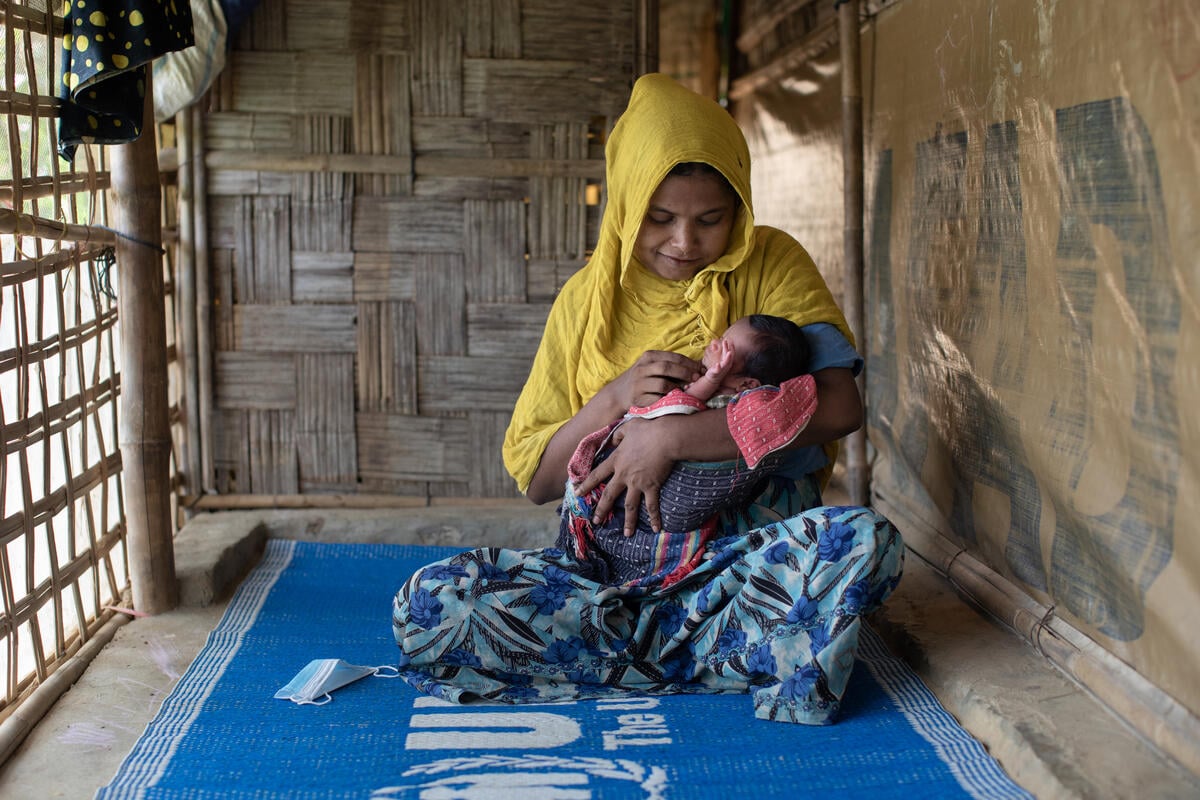Funding shortage hampers assistance for Liberian and Sudanese refugees
Funding shortage hampers assistance for Liberian and Sudanese refugees

GENEVA/MONROVIA, April 16 (UNHCR) - The UN refugee agency today appealed for funds for its cash-strapped programmes for Liberian and Sudanese refugees one month after an Africa Dialogue raised hopes of donor support for the anticipated return of millions of refugees in the continent.
UNHCR spokesman Ron Redmond said that the agency's operations in Sudan and Liberia have been affected by a lack of funding. The situation was particularly dramatic in Liberia, where Liberian returnees find themselves marooned in camps for IDPs, or internally displaced people, because their resettlement areas remained unsafe.
"The returnees in the IDP camps live in miserable conditions as food, water and medical facilities are insufficient for the new arrivals," Redmond said.
On March 8, the Africa Dialogue in Geneva tasked the UN refugee agency to set up a working group to support the return and reintegration of up to two million refugees and several million more IDPs in Angola, Burundi, the Democratic Republic of the Congo, Eritrea, Liberia, Rwanda and Sierra Leone, in addition to Sudan and Liberia.
"The paradox here is that donors are always anxious to see these solutions get off the ground, but we can't do that without first buying trucks, building transit centres, digging water wells, reconstructing schools and all of the other preparatory work that must be done months before the arrival of the first returnees," Redmond said.
He said Liberia and Sudan faced "the most crucial funding situations."
UNHCR has appealed for $8.8 million for preparatory activities for voluntary repatriation and reintegration of Sudanese refugees. It has so far received about $3 million. Large expenses have already been incurred by the pre-positioning of domestic items, and deployment of an emergency team, light vehicles and telecom equipment.
UNHCR had appealed for some $39.2 million for its programme in Liberia this year. So far only $3 million has been received. The shortfall as of today stands at $36.2 million. With the ongoing deployment of UNMIL troops since the ouster of former president Charles Taylor last year that ended a 14-year conflict, and the resumption this week of the disarmament and demobilisation campaign in Liberia after a four-month suspension, UNHCR said it was clear that optimism runs high among Liberian refugees abroad.
Although UNHCR has mounted a campaign with the Liberian government and returnee representatives in countries of asylum to inform Liberian refugees that it is still too soon to return, it is likely that there will be continued spontaneous returns from Sierra Leone, Guinea and Ghana. There are some 300,000 Liberians outside their country.
The Disarmament, Demobilization, Rehabilitation and Reintegration (DDRR) Programme resumed on Thursday in Gbarnga town, about 150 km east of Monrovia. More than 350 people showed up at the pickup point, including 174 combatants.
"We welcome the resumption of the demobilization process," said Moses Okello, UNHCR's representative in Liberia, adding that the refugee agency has made available material support for the cantonment sites. The UNHCR relief assistance included 4,000 plastic mats and blankets, 600 jerry cans, kitchen sets and lanterns, 8,000 bars of soap, 30 big cooking pots and five plastic rolls.
"We hope to help change the face of Liberia," Okello said, pointing out that the demobilization Programme was a critical part of the process. He said a lot of work has been done to make this Programme work.








